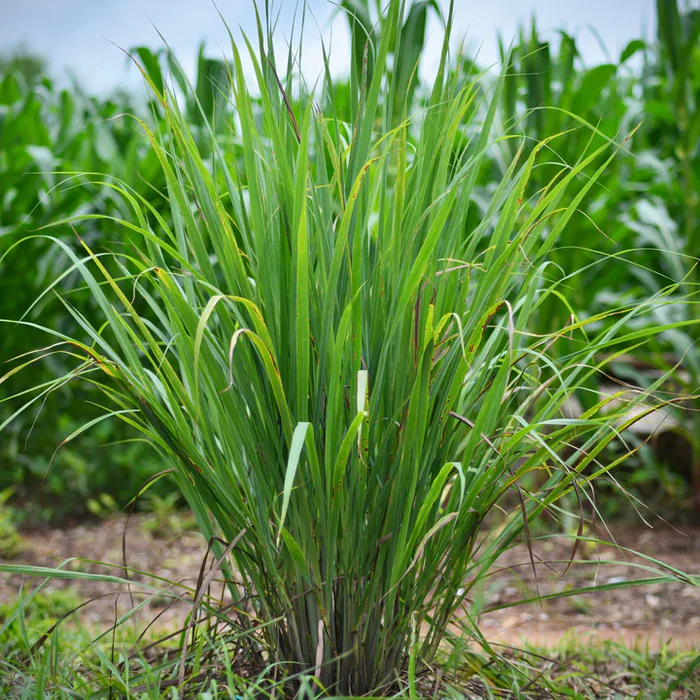
Lemon Grass
Lemon Grass (Cymbopogon citratus)
Common Names: Lemon Grass, West Indian Lemon Grass, Fever Grass, Citronella Grass.
Best Growing Environment: Lemon Grass thrives in well-draining soils enriched with organic matter. While it prefers full sun, it can tolerate a bit of shade. The plant loves warmth and humidity and grows well in tropical and subtropical climates.
Average Height: Lemon Grass typically grows in clumps that can reach heights of 3-6 feet, with a spread of about the same width.
Growth Rate: Lemon Grass is known for its fast growth rate, especially in ideal conditions where it has ample sunlight and moisture.
Sun Requirements: This aromatic herb loves the sun. Plant Lemon Grass in a location where it will receive at least 6-8 hours of direct sunlight daily.
Cold Hardiness: Lemon Grass is a tropical plant and is sensitive to frost. It is suitable for outdoor cultivation in USDA zones 9-11. In colder zones, it's recommended to grow Lemon Grass in containers that can be moved indoors during winter or treated as an annual.
Water Requirements: While Lemon Grass enjoys moisture, it doesn't like waterlogged conditions. Water regularly, especially in the hot summer months, but ensure the soil drains well. The soil should be allowed to dry out between watering intervals slightly.
Fertilizing Guide: Feed Lemon Grass with a balanced, slow-release fertilizer at the beginning of its growing season in the spring. A nitrogen-rich organic fertilizer, like composted manure, can be applied mid-season to encourage lush growth.
Planting Guide: Choose a sunny location with well-draining soil. Dig a hole slightly larger than the root ball, set the plant in, and backfill with soil, firming gently around the base. For container growth, use a large pot with drainage holes and a good-quality potting mix. Lemongrass can be propagated easily by division.
USDA Zone: Lemon Grass is best suited for USDA zones 9-11 for outdoor year-round growth. In cooler zones, consider growing it as an annual or in containers that can be brought indoors during the colder months.
Lemon Grass, known for its aromatic, lemon-flavored leaves, is often used in culinary dishes, especially in Asian cuisine. Aside from its culinary uses, it is also celebrated for its medicinal properties and as a natural insect repellent due to its citronella content. Whether planted in the garden or in pots on a patio, Lemon Grass is not only functional but also adds a touch of the tropics with its tall, slender, green blades.

